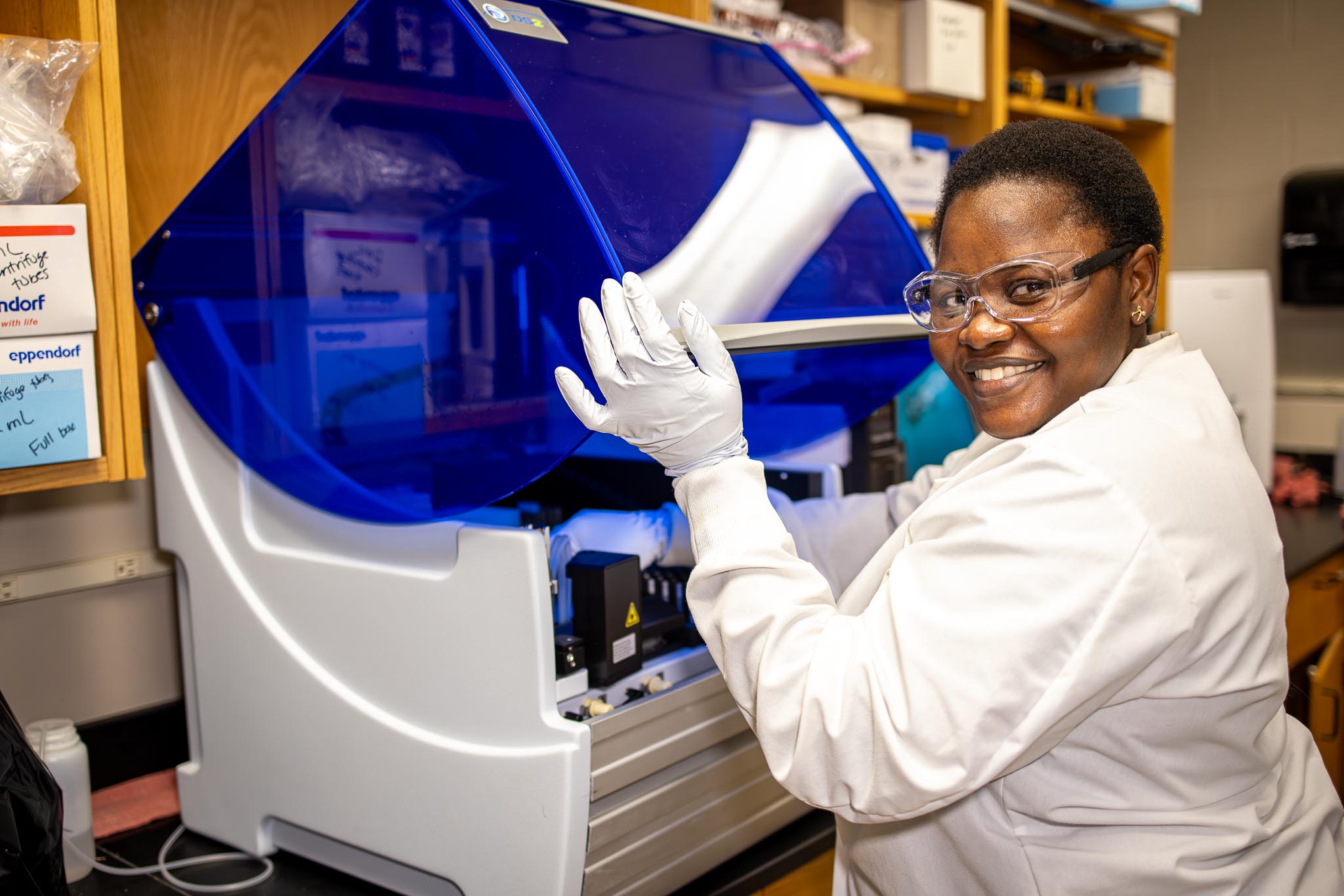Master of Science in Aquaculture and Aquatic Sciences

The School of Aquaculture and Aquatic Science in the College of Agriculture, Health, and Natural Resources at Kentucky State University offers a Master of Science Degree in Aquaculture and Aquatic Science. Aquaculture is the rearing of aquatic organisms under controlled or semi-controlled conditions.
Interest in Aquaculture has increased worldwide, as fish consumption has increased concurrently with decreasing catches of wild fish. In Kentucky and the southern United States, aquaculture production focuses on raising aquatic species commercially. The curriculum meets criteria established by the University Programs Standards Committee of the American Fisheries Society for Fish Culture Specializations.
This program is designed to provide students with the training and experience required for immediate employment. However, the program is also designed to provide the academic foundation for further graduate studies. Each student will have a graduate committee. This committee will be responsible for designing the student's course of study and student's competencies based on comprehensive evaluation, and thesis or non-thesis presentation and defense.
Upon completion of the program, a student should have knowledge of production and reproduction of primary aquaculture species, basic physiology and nutrition of Aquatic vertebrate and invertebrate culture species, mechanics and operation of primary production methods, causes and controls of pathogenic organisms, the function and manipulation of biological and chemical cycles in ponds, basics of marketing and business aspects of aquaculture, and the design and analysis of experiments.
There are a number of Graduate Research Assistantships in the Aquaculture Program available to qualifying graduate students in the areas of agribusiness, water quality, fish diseases, genetics, aquaculture production, alternative species production, aquaponics, aquaculture engineering and additional areas.